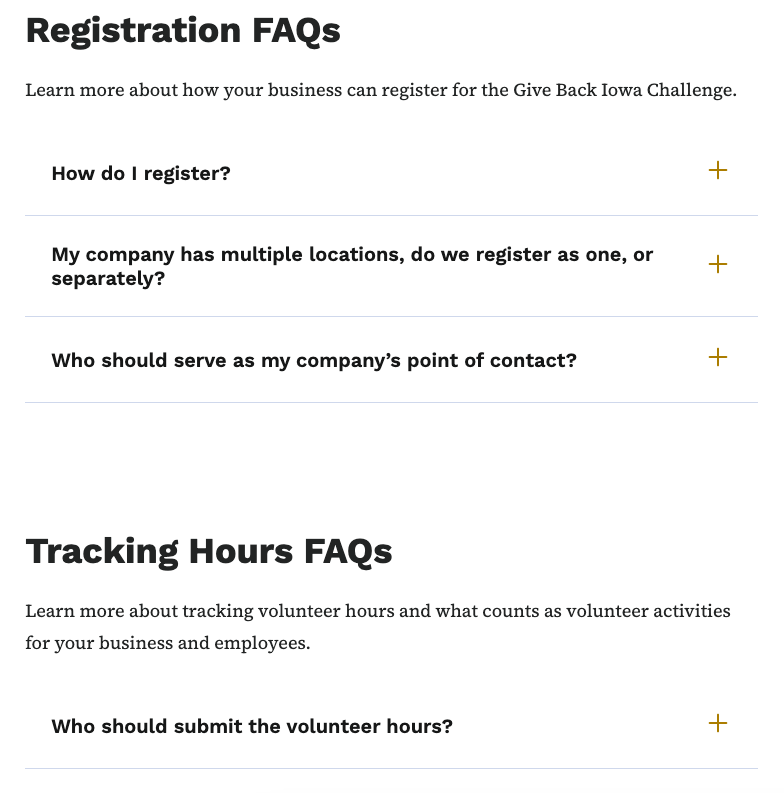On this page...
The State Voice, Tone, and Style Guide now includes FAQ Best Practice Information.
Back to topRequired Reading
Government Digital Services Blog
Bynder Content Workflow
Background on FAQs
FAQs create content overhead: an FAQ needs to be monitored and maintained and risks confusing users if you don't keep it up to date. “The problem of FAQs really shows in search, where you will end up with duplicate results competing for attention. You are fighting with your own content.”
Back to topWhen should I avoid FAQs?
Don’t create FAQs if the content or information exists on another page. This is duplicate content and can confuse users and search engines. Instead, clean up content on the source page and use plain language, paragraph breaks, and appropriately labeled subheads so you can answer questions contextually and organically for people.
Most importantly, avoid single pages of FAQs, where you just list long accordions or headings of questions. These pages often drag user experience down, increasing their time on the page and adding to their mental digestion.
Back to topWhen should I use FAQs?
FAQs are best done in context to related content. For example, a page about registering for a program or service may have information about the program, and related questions about how to sign up.

The best FAQs should be questions that are, truly, asked frequently of your staff. These could be by email, or by phone. Avoid inventing questions you think are necessary to answer. If you’re finding that’s the case, that content is more important to be structured and strategized elsewhere.
Back to topHow to create useful FAQs
- Write questions from the point of view of your customer, using plain language and words they use.
- Use real questions, based on questions you’ve received by email or phone from your website users.
- Keep FAQs on related parent topic pages, 3-5 at most.
- If you have several on a page, use subheadings to break them into useful categories or topics (see example).
- Write the FAQ in an actual question-and-answer format. Start answers to yes/no questions with a definitive yes or no.
- Keep answers short and use plain language.
- Fully answer the question, don't just link to a different page.